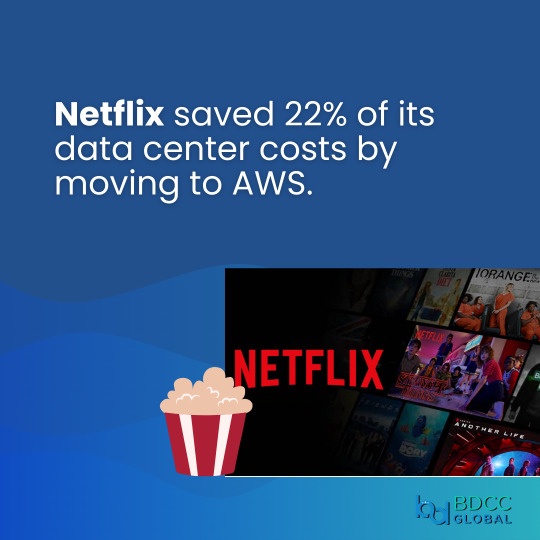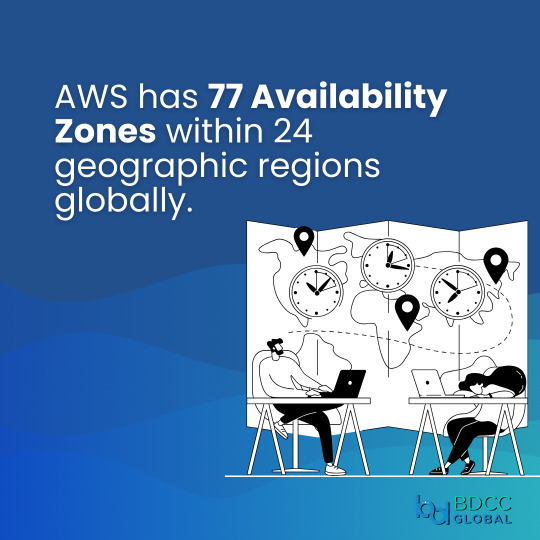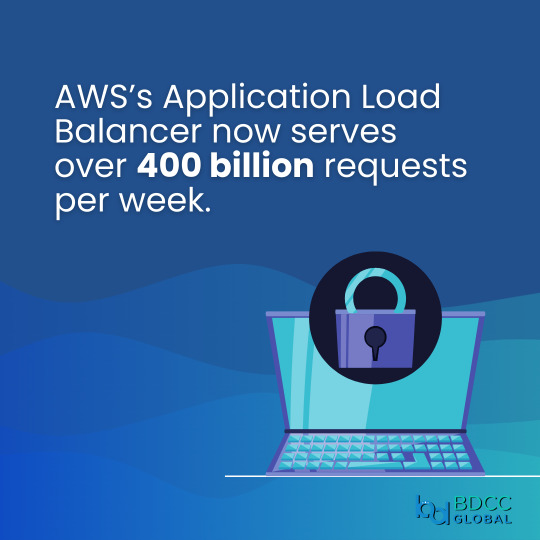#azure devops consultant
Explore tagged Tumblr posts
Text
Secure DevOps: How Cloud DevOps Services Improve Application Security

In today’s fast-paced digital landscape, businesses are under pressure to innovate quickly without compromising on security. Customers expect new features, faster updates, and high availability—yet the rise of cloud computing and microservices has also expanded the attack surface for cyber threats.
That’s where Secure DevOps, also known as DevSecOps, enters the scene. It blends the agility of DevOps with proactive, embedded security practices. When powered by Cloud DevOps Services, organizations can automate and enforce security across every stage of the development lifecycle—from code to deployment and beyond.
This article explores how Cloud DevOps Services improve application security, why traditional methods fall short, and how businesses can implement a secure-by-design DevOps culture without sacrificing speed or scalability.
⚙️ What Is Secure DevOps?
Secure DevOps is the integration of security practices directly into the DevOps workflow. Instead of treating security as a final checkpoint, Secure DevOps makes it a shared responsibility for developers, operations teams, and security professionals alike.
Key principles include:
Shift-left security (testing early in the development process)
Automation of security checks in CI/CD pipelines
Continuous monitoring and incident response
Infrastructure-as-Code (IaC) with secure configurations
By embedding security into development from the start, Secure DevOps ensures that vulnerabilities are identified and resolved early—before they make it into production.
🔍 Why Traditional Security Approaches Don’t Work in the Cloud Era
In legacy IT environments, security teams operated in silos. Applications were developed over months or years and then handed off to security for review before deployment.
This approach simply doesn’t work in the age of:
Cloud-native apps
Microservices architecture
Continuous Integration / Continuous Deployment (CI/CD)
When developers are pushing changes daily or even hourly, security can’t be an afterthought. Manual reviews and firewalls at the perimeter are no longer sufficient.
Cloud DevOps Services help bridge this gap—by embedding security checks into automated workflows and ensuring protection across the entire stack.
🔐 How Cloud DevOps Services Improve Application Security
Let’s explore the major ways Cloud DevOps Services enhance security without slowing down innovation.
1. Integrating Security into CI/CD Pipelines
Modern Cloud DevOps Services help businesses set up secure, automated CI/CD pipelines that:
Scan code for vulnerabilities as it's committed
Run container and dependency scans before builds
Perform automated security tests as part of the deployment process
Tools like Snyk, SonarQube, Aqua Security, Trivy, and Checkmarx can be integrated with GitHub, GitLab, Jenkins, or Azure DevOps to detect vulnerabilities before the code ever goes live.
These early-stage checks ensure:
Secure coding practices
Up-to-date and trusted dependencies
No hard-coded secrets or misconfigurations
2. Securing Infrastructure-as-Code (IaC)
With IaC, developers define cloud infrastructure using code—Terraform, CloudFormation, or ARM templates. But that infrastructure can include:
Public-facing storage buckets
Open security groups
Unencrypted volumes
Cloud DevOps Services scan IaC templates for misconfigurations before provisioning. This prevents insecure setups from ever reaching production.
They also enforce policies-as-code, automatically blocking non-compliant deployments—like allowing unrestricted SSH access or deploying to unauthorized regions.
3. Enforcing Identity and Access Management (IAM)
In the cloud, identity is the new perimeter. Poorly configured IAM roles are among the top causes of cloud data breaches.
Cloud DevOps Services enforce:
Least privileged access to services and data
Role-based access control (RBAC)
Federated identity integration with SSO providers (like Okta or Azure AD)
Secrets management through services like AWS Secrets Manager or HashiCorp Vault
By automating and monitoring access rights, these services reduce the chances of privilege escalation or unauthorized access.
4. Container Security and Orchestration Hardening
Containers have revolutionized how applications are built and deployed—but they bring their own security challenges. Misconfigured containers or unpatched base images can expose sensitive data.
Cloud DevOps Services help secure containers by:
Scanning images for known vulnerabilities
Enforcing signed and verified images
Setting up runtime security policies using tools like Falco or Kubernetes admission controllers
Monitoring for drift between deployed and intended configurations
In orchestrated environments like Kubernetes, Cloud DevOps teams also:
Enforce namespace isolation
Secure K8s API access
Use network policies to limit pod communication
5. Automated Security Monitoring and Incident Response
Secure DevOps is not just about prevention—it’s also about real-time detection and response.
Cloud DevOps Services set up:
Centralized logging with tools like ELK Stack, Fluentd, or CloudWatch
SIEM integration (e.g., with Splunk, Azure Sentinel, or AWS Security Hub)
Alerting systems tied into Slack, Teams, or email
Automated incident response through playbooks or runbooks
This allows businesses to respond to threats in minutes, not days.
6. Continuous Compliance and Auditing
Whether it’s GDPR, HIPAA, ISO 27001, or PCI DSS, compliance in the cloud is complex—and often a moving target.
Cloud DevOps Services simplify compliance by:
Mapping policies to compliance frameworks
Generating automated audit logs and reports
Enforcing controls via code (e.g., blocking non-compliant configurations)
Continuously scanning environments for violations
This helps businesses stay audit-ready year-round—not just during compliance season.
🚀 Getting Started with Secure Cloud DevOps
To begin your Secure DevOps journey, start with:
Assessing your current DevOps pipeline
Identifying security gaps
Choosing the right Cloud DevOps partner or tools
Building a roadmap for automation and policy enforcement
Training teams to adopt a security-first mindset
Remember, Secure DevOps isn’t a one-time project—it’s a culture shift supported by the right cloud tools, automation, and expertise.
🔚 Final Thoughts
Security is no longer optional in a world where applications run in the cloud and threats evolve daily. The key is to build security into your DevOps processes—not bolt it on after the fact.
With Cloud DevOps Services, you get the best of both worlds:
Rapid innovation
Continuous delivery
Enterprise-grade security
Whether you're a startup or an enterprise, investing in Secure DevOps means protecting your applications, your data, and your reputation���without slowing down your growth.
Security doesn’t have to come at the cost of speed. With Secure DevOps, you get both.
#azure devops consultant#devops as a service companies#devops as a service#devops service providers#devops solution#devops expert
0 notes
Text
Uncover the power of AWS with our carousel of key findings! Dive into essential AWS statistics and unlock insights you didn't know you needed.






4 notes
·
View notes
Text
Top FAQs about Azure DevOps Consulting

The complexity of modern software development is overwhelming you, don't you think? Do you want to increase output and simplify your processes? Azure DevOps can assist! To help you understand how Azure DevOps consulting can help your business, this blog article answers the most common questions regarding it.
Here are the key factors: ➡️ You can create automated testing and deployment pipelines, train your teams on best practices, and set up and configure DevOps services with the assistance of Azure DevOps specialists.
➡️ Businesses encounter difficulties with integration, security issues, and cultural opposition to change. You can overcome these obstacles by using consulting services.
➡️ Security is a top priority, and to guarantee compliance, consultants integrate security principles into your development pipeline.
➡️ It uses several features to optimize CI/CD pipelines for scalability and performance, and integrates with other tools.
Azure DevOps consulting might be a great help if you're trying to start from scratch or improve your current DevOps procedures.
Are you prepared to find out more? For a more thorough discussion of these subjects, visit the blog post!
4 notes
·
View notes
Text
#Devops Development Company USA#DevOps Consulting Services#Azure Development Company in USA#Cloud Consulting Company USA#Azure Cloud Consulting Service
0 notes
Text
Training consulting companies in Philadelphia
Discover top training consulting companies in Philadelphia, specializing in customized employee development, leadership training, and organizational effectiveness. Enhance skills, boost productivity, and drive business success through expert-led programs tailored to your needs.

#jira assessment#azure devops training#hire scrum master#agile brains consulting#jira administrator projects
0 notes
Text
Boost Your Business with Expert Azure DevOps Consulting Services
Want to simplify the way you build and release software? Then we as a business offer Azure DevOps consulting services that automate workflows, enhance collaboration, and improve operational efficiency. Whether CI/CD implementation or cloud optimization, we enable seamless integration and swift delivery. Contact us today to revolutionize your IT setup! URL:
1 note
·
View note
Text
#Mobile App Development Company near me#Mobile App Development Company#software development company in india#Cloud Consulting Services in Noida#Cloud Consulting Services#app development in noida#software development company in noida#custom software development company in noida#ios app development company in noida#AWS Cloud Services#Best Service cloud consulting providers#Microsoft Azure cloud consulting services#Cloud Consulting Services India#Amazon Cloud Consulting Services#Cloud Software Consulting Services#Devops consulting and managed cloud services#AWS cloud consulting services#Cloud Managed Services#Cloud Strategy & Consulting Service#Cloud Services#Cloud Consulting Services in India#Cloud Consulting Services & Solutions#Best software development company#Best software development company in noida#Custom Flutter App Development Company#mobile app development company near me#app development companies near me#app development company near me#mobile app development company#app development companies
0 notes
Text
Expert Cloud Consulting Services provide devops consulting services, azure devops services at best cost in pune, Mumbai, India.
0 notes
Text
Techjour can provide devops architect and engineer for your prominent Project OR Client. we can also offer you support and consulting.
DevOps team reduces your server cost by integrating tools, deliver scalable application and optimise your business processes.
#techjour#automation#startup#aws cloud#aws#gitlab#google cloud#microsoft azure#technology#devopsengineer#devops#gcp cloud consulting services#strategy consulting#saas development#devopstools#devsecops#hire developers
0 notes
Text
What is the best Azure online training?

The best Azure Online Training provides a comprehensive, hands-on learning experience covering core to advanced Azure topics. This training typically includes modules on Azure fundamentals, deployment, security, networking, storage, Azure DevOps, and multi-cloud management, enabling learners to develop cloud solutions using Azure's diverse services.
What is Microsoft Azure Online Training?
Microsoft Azure Online Training is a structured program designed to teach individuals and teams how to use Azure cloud services effectively. Azure is a cloud platform offering a range of services, including computing, analytics, storage, and networking. The training encompasses real-world scenarios, interactive labs, and expert-led sessions to help participants understand Azure’s cloud architecture and its applications in various industries.
How to Learn Azure through Online Training?
Start with Fundamentals: Begin with the basics like Azure's core services, architecture, and platform navigation.
Interactive Labs and Real-World Projects: Most courses provide practical labs, allowing learners to work on deploying resources, managing networks, configuring VMs, and securing environments.
Advanced Modules: After building a foundation, move to advanced modules like Azure DevOps, containerization with Kubernetes, Azure AI, and multi-cloud strategies.
Certification Preparation: Comprehensive training usually prepares learners for certifications like Azure Fundamentals (AZ-900), Azure Administrator (AZ-104), and Azure Solutions Architect (AZ-305).
Who Can Learn Microsoft Azure?
Azure Online Training is suitable for:
IT Professionals: System admins, network engineers, and DevOps professionals who want to upskill.
Developers: Software developers interested in creating and deploying applications on Azure.
Business Analysts and Architects: Those involved in designing and implementing cloud solutions.
Beginners and Cloud Enthusiasts: Anyone looking to start a career in cloud computing.
Prerequisites for Microsoft Azure Online Training
While beginners can start with foundational courses, the following prerequisites can be helpful:
Basic IT Knowledge: Understanding of computer systems, operating systems, and networking.
Experience with Virtualization and Networking: Familiarity with concepts like virtual machines, IP addressing, and DNS.
Programming Knowledge (Optional): While not mandatory, knowledge of scripting or programming can be beneficial for advanced Azure functions and automation.
Promote Microsoft Azure Online Training
If you're looking to dive into the world of cloud computing, Microsoft Azure Online Training is an ideal choice! Our training at Naresh I Technologies (NiT) provides an engaging learning environment with certified instructors, 24/7 support, and real-world projects. Join our Microsoft Azure Online Training to gain the skills necessary for in-demand certifications and excel in your career with cloud expertise. Start today and become an Azure professional with Naresh IT!
0 notes
Text
Common DevOps Challenges and How Service Providers Solve Them

DevOps has become a critical approach for modern software development, enabling organizations to streamline workflows, improve collaboration, and accelerate product releases. However, adopting and implementing DevOps comes with its own set of challenges. From cultural shifts to tool integration and security concerns, businesses often struggle to realize DevOps' full potential. This is where DevOps service providers step in, helping organizations overcome these obstacles efficiently.
1. Cultural Resistance to Change
The Challenge:
One of the biggest hurdles in DevOps adoption is resistance to change within an organization. Development and operations teams traditionally work in silos, and shifting to a collaborative DevOps culture can be difficult. Employees may resist adopting new processes and tools, fearing job security risks or increased workloads.
How Service Providers Solve It:
DevOps service providers facilitate cultural transformation by implementing best practices, conducting training sessions, and fostering a collaborative work environment. They introduce Agile methodologies and automation tools to ease the transition and ensure all stakeholders understand the benefits of DevOps.
2. Integration of Tools and Technologies
The Challenge:
Organizations often struggle with integrating various tools used in development, testing, deployment, and monitoring. Many enterprises have legacy systems that do not seamlessly connect with modern DevOps tools, causing inefficiencies and bottlenecks.
How Service Providers Solve It:
DevOps service providers assess the existing tech stack and recommend a cohesive set of tools that work together. They implement CI/CD (Continuous Integration/Continuous Deployment) pipelines, containerization, and orchestration solutions like Kubernetes to ensure smooth integration and automation.
3. Security and Compliance Risks
The Challenge:
With faster release cycles, security often takes a backseat, increasing the risk of vulnerabilities and compliance violations. Traditional security practices may not align with DevOps' rapid development model.
How Service Providers Solve It:
DevOps service providers incorporate DevSecOps practices, embedding security into every stage of the software development lifecycle. They use automated security scanning, compliance monitoring, and access control mechanisms to ensure robust security while maintaining speed.
4. Lack of Skilled DevOps Professionals
The Challenge:
Hiring and retaining experienced DevOps engineers can be difficult, as the demand for skilled professionals far exceeds supply.
How Service Providers Solve It:
Service providers offer access to a team of certified DevOps experts who can handle infrastructure automation, cloud management, and CI/CD implementation. This eliminates the need for in-house hiring while ensuring the organization benefits from industry best practices.
5. Scalability Issues
The Challenge:
As businesses grow, their infrastructure needs to scale accordingly. However, managing scalability manually is complex and often leads to downtime or performance issues.
How Service Providers Solve It:
DevOps service providers implement cloud-native solutions, auto-scaling configurations, and container orchestration to ensure applications can handle increased workloads without manual intervention. They leverage cloud platforms like AWS, Azure, and Google Cloud for seamless scalability.
6. Inefficient Monitoring and Logging
The Challenge:
Many organizations lack effective monitoring and logging mechanisms, making it difficult to identify performance bottlenecks and security threats.
How Service Providers Solve It:
DevOps service providers integrate advanced monitoring tools like Prometheus, Grafana, ELK Stack, and New Relic. These tools provide real-time insights into system performance, helping teams proactively address issues before they impact end users.
7. Managing Multi-Cloud Environments
The Challenge:
Enterprises often use multiple cloud providers, leading to challenges in managing workloads, security policies, and cost optimization.
How Service Providers Solve It:
DevOps service providers implement cloud management platforms and Infrastructure-as-Code (IaC) tools like Terraform to standardize configurations across cloud environments. This ensures consistency, security, and cost efficiency.
8. Continuous Testing Bottlenecks
The Challenge:
Ensuring software quality while maintaining rapid deployment cycles is difficult. Many organizations struggle with slow and ineffective testing processes.
How Service Providers Solve It:
Service providers implement automated testing frameworks, including unit tests, integration tests, and performance testing. They integrate tools like Selenium, JUnit, and TestNG to enable continuous testing and faster feedback loops.
9. Ineffective Change Management
The Challenge:
Frequent code changes can introduce bugs and deployment failures if not managed properly.
How Service Providers Solve It:
DevOps service providers implement version control systems like Git, along with CI/CD pipelines, to ensure seamless change management. They also use feature flagging and rollback strategies to minimize deployment risks.
10. Cost Optimization Challenges
The Challenge:
Without proper resource management, DevOps infrastructure costs can escalate quickly, impacting the overall IT budget.
How Service Providers Solve It:
Service providers optimize cloud resource allocation, implement FinOps strategies, and use automation to reduce unnecessary expenditures. They help organizations adopt cost-effective DevOps practices while maintaining performance.
Conclusion
Implementing DevOps is not a challenge, but with the right expertise and solutions, businesses can overcome these obstacles effectively. DevOps service providers bring experience, tools, and strategies to help organizations streamline development, improve security, and enhance operational efficiency. By leveraging their expertise, companies can unlock the full potential of DevOps and stay competitive in the digital landscape.
#azure devops consultant#devops as a service companies#devops as a service#devops service providers#devops solution#devops expert
0 notes
Text
Debating between Pulumi and Terraform for Infrastructure as Code? Dive into our latest article to uncover the strengths of each and discover which tool suits your needs best. Don't miss out on this essential read:
2 notes
·
View notes
Text
Our Azure cloud consulting services enable you with end-to-end support for cloud migration, development & optimization to address your business needs.
#ifi techsolutions#microsoft partner#microsoft azure#information technology#software#technology#clouds#devlog#cloudcomputing#cloud infrastructure#cloud computing#marketing#azure devops#azure infrastructure#azure migration#azure services#azure cloud#cloud consulting
0 notes
Text

DevOps Online Course at Just Rs.6,000/- only... Refer a friend and get Rs.1,000/- cash bonus... Enroll Now !! or Refer a Friend... Call as at +91 9487107243... Or Email us at [email protected] Or Visit https://www.svsitsolutions.in
#devops #devopsengineer #devopsengineering #devopsengineering #devopscommunity #devopstools#devopsjobs#devopsdays#devopsonlinetraining#devopsonline#devopsonlinecourse#devopstamil #devopscertification
#devops#devops online training#aws devops#azure devops#online training#devops tools#devops training#devops course#devops certification#devops consulting services#devopsculture#devopsengineer
1 note
·
View note
Text
vimeo
Why DevOps Professional Services are Important for Modern Businesses?
Unlock the potential of DevOps professional services for modern businesses. Drive innovation, accelerate delivery, and stay ahead of the competition. Explore the benefits today.To know more checkout the video and visit: https://www.moreyeahs.com/services/cloud-computing/devops/
0 notes
Text

DataEdgeUSA integrated DevOps services to help speed up business processes and ensure high-quality software delivery. With our extensive knowledge and industry experience, we can help businesses develop and deploy dependable software applications on Microsoft Azure, Amazon AWS, and Google Cloud platforms.
0 notes